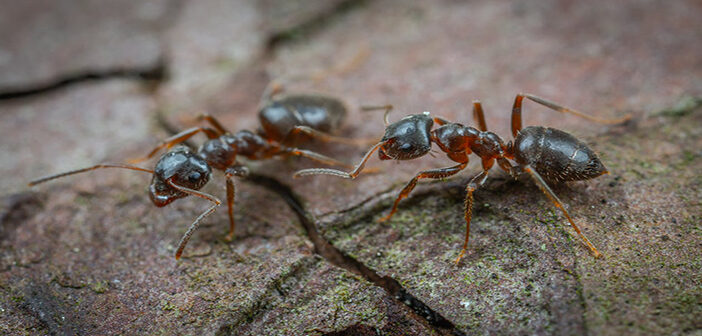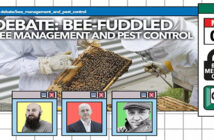Controlling ants is a key job for pest controllers during the warmer months, with the hospitality industry, food industry, and residential properties all preparing for an onslaught of these small but mighty pests as the temperatures increase.
Unfortunately, it is also the busiest time of year for many food establishments and venues, with people also spending more time dining al fresco at home, making fast and effective pest management more important than ever.
While black ants (Lasius niger), don’t transmit bacteria that can lead to dangerous diseases, some ant species do spread disease and therefore still pose a serious risk to food contamination, not to mention the fact that they are an unwelcome guest.
As we approach key ant infestation season, BASF’s Laurence Barnard advises on some simple steps to prevent ants from taking over, whether your client is a hospitality venue or residential property:
“The single biggest thing that attracts ants is food and drink, so a general focus on hygiene is important to prevent attracting ants in the first place. To effectively prevent inviting ants inside, we suggest taking the following pest management precautions:
- Ensure spillages are cleared up immediately and that bins are emptied often, with regular washes scheduled to ensure food debris and residue isn’t allowed to build up on the outside or inside of the bin;
- Keep worktops and counters inside clean to prevent any sticky surfaces and store food safely away in cupboards or fridges in sealed, airtight containers;
- Avoid leaving windows and doors open where possible, and ensure a weather-resistant sealant is used to close up any cracks or crevices where ants may enter. Unsurprisingly, ants only need the smallest of entry points; and
- Cut back vegetation around doors and if possible, try not to use plants that are “insect-friendly” within close proximity to the building.
Mr Barnard said: “If your client is facing a serious ant infestation, use an insecticide with the active ingredient fipronil, like Formidor, for fast and effective control of the whole colony. In contrast to organophosphates, carbamates or pyrethoids, fipronil decreases the periodic inhibition of electrical impulses and ultimately leads to death through over excitation.
“It features a sugar rich, carbohydrate-based formulation, making it irresistible to all kinds of ants, including the Garden ant, Argentine ant, Erratic ant, Pavement ant and Invasive garden ant.
“As a result, it’s readily consumed and transferred back to the nest to feed the entire colony through ant’s communal food sharing behaviour of trophallaxis.”
Mr Barnard continued: “What’s more, foraging ants can’t detect the active ingredient, fipronil, making it even more irresistible and effective. Once consumed, studies show that the insecticide can have a lethal effect between 12 and 24 hours after ingestion, leading to complete colony collapse within 10-14 days.
“The gel bait is ready to use and does not require dilution – simply apply to cracks and crevices or in bait stations for proven, low dose efficacy.”




